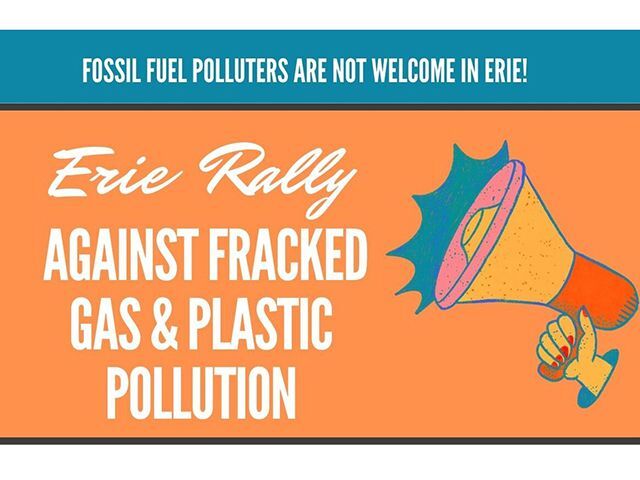
The Marcellus Shale Coalition, the most powerful fossil fuel lobby in the region, is holding its Shale Insight conference at Erie's Bayfront Convention Center, September 24-26. Their goal is to increase fracking and the use of fossil fuels, worsening the climate crisis. Benedictines for Peace is helping organize two main opportunities to join with others who are opposed to the aims of this conference.
First, there will be a rally during the conference's opening remarks on the morning of September 25. From 9:30-10:30 a.m. join us on the public sidewalk by the Bayfront Convention Center for a demonstration that highlights the need for investment in renewable energy and an end to the pollution caused by the fossil fuel industry. You are welcome to bring a sign, and some signs will be available at the rally.
Then, from 7-8 p.m., return to the same area by the Bayfront Convention Center for a Season of Creation prayer vigil and movement meditation. The Season of Creation is a special time for interfaith prayer and action for the Earth, our common home, that runs from September 1 to October 4. A short prayer service will be followed by a meditative dance performance reflecting on the beauty and sacredness of our planet.
Who is the Marcellus Shale Coalition and why should we be concerned?
The Marcellus Shale Coalition is the most powerful fossil fuel trade association or lobbying entity in Pennsylvania and the region – advocating for a continued reliance on fracked, methane gas. Pennsylvania remains the 4th largest emitter of carbon dioxide by US State and the second largest producer of fracked gas.
We are not on pace to reach the emissions reduction goals in Pennsylvania’s Climate Action Plan, and the Marcellus Shale Coalition is at the center of advocacy for maintaining this status quo and expanding natural gas usage.
Fracking produces huge amounts of toxic wastewater, pollutes groundwater and surface water, emits huge amounts of methane, threatens the health and safety of workers and communities, and releases toxic air pollutants. Studies, including in Pennsylvania, showed associations between proximity to fracking and adverse health outcomes like pregnancy complications, cancer, and asthma.
The unfortunate irony is that this conference is taking place right on our waterfront. Lake Erie and its ecosystems are negatively impacted by climate change right now, whether it be from lack of ice cover, longer lasting and larger harmful algal blooms, or extreme weather and heavy rain leading to more polluted runoff.
Email [email protected] for more information.
